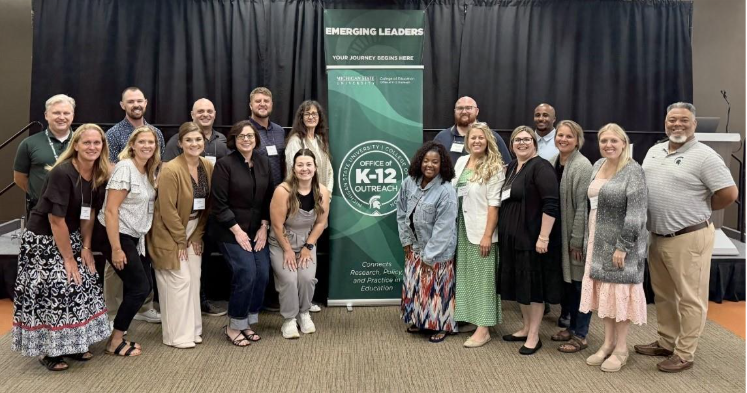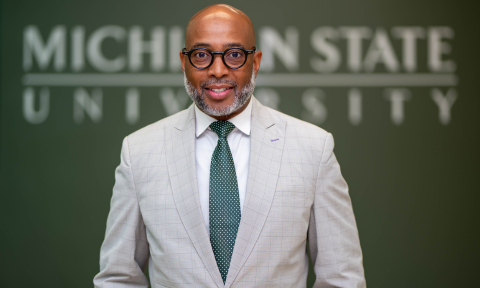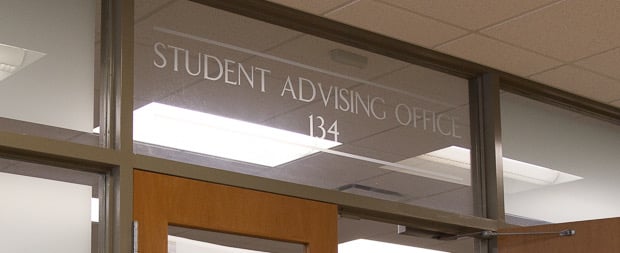Developing the Next Generation of Administrators at the 2025 Emerging Leaders Program
Back in February 2021, the Wallace Foundation supported research on the importance of principals for students, teachers, and the broader school community. After combing through “219 studies published since 2000” that “were culled from a systematic search of 4,800 empirical research studies and other literature,” the study’s authors felt comfortable saying that “principals really matter” and that these school leaders, when effective, can “contribute to important outcomes like student achievement, reduced absenteeism, and teacher retention” (Grissom et al., 2021). While many former students, parents of school-aged children, and educators could have likely passed along personal anecdotes supporting the significance of school leaders even before this work’s publication, this effort was significant in quantitatively connecting efficacious school leaders to higher student reading and math achievement, “higher student attendance rates,” and improved teacher “job satisfaction” at scale (Grissom et al., 2021).
Unfortunately, while digging into the existing literature surrounding school leaders, these authors also found some disturbing trends concerning the current state of the administrator labor market, including that “the composition of the principal workforce has failed to keep pace” with rapidly changing student demographics and that principals are, on average, less experienced than they were previously (Grissom et al., 2021). Additionally, in recent years, various outlets have noted deepening shortages of available school administrators at all, driving “a dearth of qualified leadership” (Peroff, 2024). Finally, there are some concerns that these trends could intensify based on worsening workplace conditions visible in a 2022 survey “by the National Association of Secondary School Principals [that] revealed that 38% of principals are considering departure” due to factors including their “stress level,” troubling “work-life balance,” insufficient compensation, and lacking “societal respect” (James, 2024).
Long recognizing the importance of school leaders to the K-12 ecosystem and taking seriously the possibility of deleterious administrator shortages, the Office of K-12 Outreach has doubled down on efforts to support these individuals while also recruiting and developing future school leaders. One such initiative that is emblematic of this commitment is K-12 Outreach’s Emerging Leaders Program, which is supported by the Michigan Association of Secondary School Principals (MASSP) and the Michigan Elementary and Middle School Principals Association (MEMSPA). For a quarter century, this professional learning offering has brought together prospective school leaders to explore in detail the knowledge, skills, and mindsets required to be a successful administrator. Over three days, participants have historically gotten to network with accomplished education leaders, listen to the experiences of leading practitioners, learn from their peers, develop their leadership capacity, and explore employment pathways. Thanks to these opportunities, Emerging Leaders attendees have been able to pursue placements in education leadership and effectively guide their new entities.
From Tuesday, July 8th, to Thursday, July 10th, the 2025 edition of Emerging Leaders took place at the Kellogg Center on Michigan State University’s campus. To kick things off, the program leadership team, including Dr. Bryan Beverly, Director of the Office of K-12 Outreach, Dr. Steven Gabriel, Outreach Specialist for K-12 Outreach, and Dr. Melissa Usiak, Associate Professor of K-12 Educational Administration in MSU’s College of Education, welcomed the approximately 20 conference attendees. Broadly speaking, the first day of Emerging Leaders was dedicated to developing rapport among this year’s participants and facilitators, setting expectations and learning norms, helping attendees consider their personal skills and leadership styles, reflecting on what characteristics are necessary for effective school leaders, and contemplating how principals can support the mental health needs and well-being of students and adults. Regarding the goal of helping participants identify their leadership preferences and connect these traits to the roles of the principalship, attendees completed the Myers-Briggs Type Indicator assessment and discussed their results with experts trained in this instrument, along with current school leaders. With that, following some reflection time and a networking lunch, the conference heard from a panel of principals, representing a wide range of districts and including MEMSPA’s Principal of the Year. When it came to previewing the duties of the principal, the program facilitators led a panel, including organization leaders and a recent student, covering administrators’ responsibilities for ensuring that both students and adults are thriving. With this collective understanding of the principalship’s importance, what characteristics these leaders need, and what strengths were present in the room, the group could progress to considering the nitty-gritty of serving as a school leader and how to secure such a position.
Emerging Leaders’ second day did just that, opening with panels on supporting leadership roles, efforts to ensure a healthy climate and culture in schools, and the importance of memberships in associations for aspiring leaders. During each of these program elements, attendees had the chance to hear directly from accomplished practitioners, ask the speakers questions relevant to their unique context, and follow up with the program’s guests via discussion sessions. Through these varied engagement opportunities, participants with different learning styles could get exactly what they needed to grow. After lunch, Emerging Leaders continued with speakers and panels addressing the administrative certification process; the importance of special education, athletics, and human resources; and the relevance of competence and confidence, together, in helping prospective administrators secure roles and effectively serve. These first and third offerings, featuring speakers representing the Michigan Department of Education, who oversees the certification process for administrators, and MSU’s College of Education, who helps prepare candidates hoping to lead schools and districts, were particularly important for participants hoping to bridge the program’s discussion of what the principalship entails with their professional aspirations of working as administrators. These elements also set up the focus of Emerging Leaders’ final day – helping attendees secure a job in one of the roles considered during the program.
Centrally, to help Emerging Leaders participants prepare to transition from this learning opportunity to their potential future roles, the program’s facilitators constructed day three around a panel of superintendents and central office leaders discussing strategies and tips for getting a job as a principal or assistant principal. They also incorporated extensive time for group debrief activities to ensure that participants had an opportunity to reflect on their learning, plan some next steps, and begin the work of seeking new opportunities in educational administration. More focused on the present, the last day of Emerging Leaders also featured MASSP’s government relations team providing an overview of the importance of advocacy concerning education policy that shapes administrators’ daily experiences and the professional context for their staff members. Together, these program components, alongside the activities, panels, expert speakers, and informal networking that filled the other days of the 2025 Emerging Leaders Program, left attendees energized and more prepared to pursue their visions of school and district leadership. In doing so, it placed them in a better position to positively impact the educational experiences of students and educators across Michigan at a crucial time for education.
Zooming out to revisit the Wallace Foundation’s findings on the importance of school leaders and the many challenges facing this profession, Emerging Leaders is just one means of ensuring that schools statewide can meet the needs of their students and staff members. That said, it is an important piece of the puzzle in energizing aspiring administrators, cultivating their latent knowledge and skills, and supporting their professional learning journeys. Looking ahead to next summer, any In Focus readers hoping to further their career while gaining a micro-credential in the process should keep an eye out for updates regarding future iterations of Emerging Leaders and related offerings from the Office of K-12 Outreach. Individuals with questions can contact Megan Papoi at mpapoi@msu.edu.





